From Monthly Film Bulletin, December 1975 (Vol. 42, No. 503). — J.R.
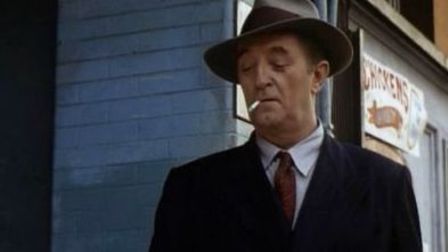
Farewell, My Lovely
U.S.A., 1975
Director: Dick Richards
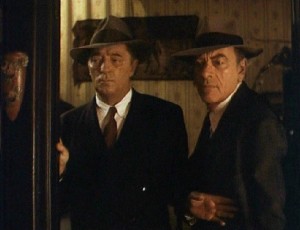
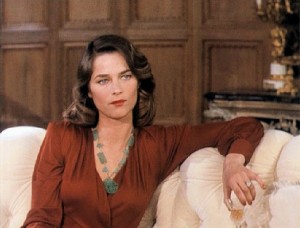
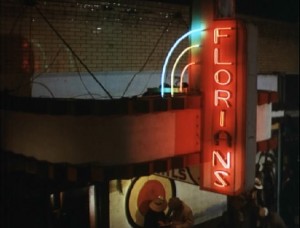
Employing the same production team (Elliott Kastner and Jerry Bick) as The Long Goodbye and the same director of photography (John A. Alonzo) as Chinatown, Farewell, My Lovely resumes the Los Angeles private-eye cycle with a clear grasp of its immediate as well as its more distant precursors. Less individual than either Altman at his most eclectic or Polanski at even his least personal, Dick Richards nevertheless seems to have an almost equally distinct idea about what to do with his material — in this case, to honor it as closely as possible in its own generic terms and not aspire to bring to it any contemporary perspective more distancing than a warm and somewhat glazed-over nostalgia. Some of the consequences — like the wonderfully evocative pastel-like impressions of L.A. at night and a torchy orchestral theme by David Shire behind the opening credits, or the deliberate use of Forties film noir devices (first person voice-over narration, flashbacks framed by blurs, dime-store expressionism to render Marlowe’s loss of consciousness — recalling Dmytryk’s treatment of the same scene thirty years ago) — are immediately apparent. In other cases, including a self- conscious series of period references (DiMaggio’s batting record, Hitler’s invasion of Russia) and recreations (the lovingly detailed and mythically idealized sets), the results are less obvious: a sentimental softening of the Marlowe character throughout is so well integrated with the crisper aspects of his fancy rhetoric that Richards and scriptwriter David Zelag Goodman almost manage to transform the detective into a Sixties liberal who plays catch Fifties-style with a grinning mulatto child without seriously jarring the reverential tone. Read more
From Cineaste (Fall 2006). — J.R.
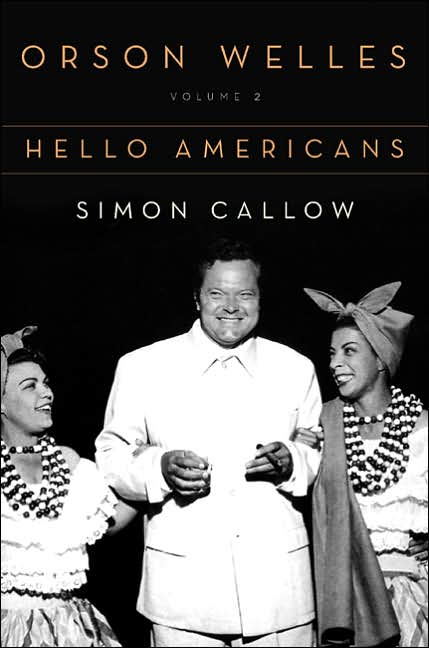
Orson Welles: Volume 2: Hello Americans
by Simon Callow. New York: Viking Adult, 2006. 528 pp., illus. Hardcover: $32.95.
“It seems to me there is a plain, if many-layered, truth to be told,” Simon Callow writes in his Preface to the second volume of his Welles biography — noting his impatience with academics whose sense of the truth is so far from plain that they can only countenance the term between quotation marks. It’s an understandable position for him to take, but he doesn’t always stick to it himself, and it’s hard to see how he could. In his second chapter, he asserts that, although no evidence supports Welles’s claim that Booth Tarkington had been his father’s best friend, it doesn’t matter at all “one way or the other; what is significant is that Welles believed it to be true, and wanted it to be true, and his conception of [Eugene Morgan in The Magnificent Ambersons] is certainly an idealized version of his father.” In other words, Callow is privileging one kind of truth over another — like all of us who write about Welles, including those pesky academics. Like it or not, it comes with the territory. Read more
From the Chicago Reader (March 14, 1997). — J.R.

Smilla’s Sense of Snow
Rating ** Worth seeing
Directed by Bille August
Written by Ann Biderman
With Julia Ormond, Gabriel Byrne, Richard Harris, Robert Loggia, Vanessa Redgrave, Jim Broadbent, Peter Capaldi, Emma Croft, and Mario Adorf.

In a couple of memorably grouchy essays published in the mid-40s, critic Edmund Wilson expounded on his impatience with detective stories, confessing that “I finally got to feel that I had to unpack large crates by swallowing the excelsior in order to find at the bottom a few bent and rusty nails.” With a few honorable exceptions, such as Kiss Me Deadly and Cutter’s Way, conspiracy films have a similar drawback: the first half is more pleasurable than the second. I suspect the reason is that the thrill of sensing a vast, invisible network behind apparent chaos is more exciting and even satisfying than the prosaic explanation, which not only reduces possibilities and halts the imagination but, by creating closure, makes the whole experience seem rather disposable.
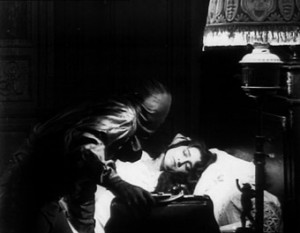
When conspiracy thrillers resemble detective thrillers — which is often — they have a built-in advantage, to my mind, because they typically approach the borders of fantasy or science fiction and play with the ambiguous line between the real and the fantastic. Read more








